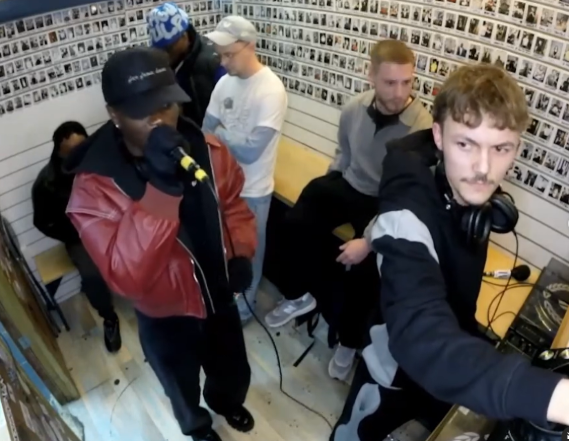
Hasnain Ali
15 Feb 2025
Drill and grime are two of the UK’s most influential rap genres, both born from underground movements and shaped by the realities of city life.
Drill and grime are two of the most popular and significant rap genres in the UK, and they have both had a significant influence on British music and society. They both came from underground movements and capture the realities of city life, but their sounds, lyrics, and cultural reception are very different.
In the early 2000s, UK garage, jungle, and dancehall elements gave rise to grime. The fast-paced, high-energy sound that adheres to 140 beats per minute (BPM) instrumentals, syncopated rhythms, and forceful delivery was primarily pioneered by musicians such as Wiley, Dizzee Rascal, and Kano. Very rapidly, the genre developed into a means of expressing working-class concerns and experiences in a way that a wide audience could relate to.
Drill, on the other hand, landed in the UK from Chicago in the early 2010s and took on its own identity in cities like London, Birmingham, and Manchester. UK drill is heavily defined by sliding 808 basslines, haunting melodies, and a darker more atmospheric production style. Lyrically, it often delves into violence, and personal struggles , creating a more ominous and introspective tone compared to the energetic approach of grime.
The way musicians present their lyrics is one of the most obvious technical distinctions between the two genres. MCs in grime are said to have a flawless flow and complex wordplay, and they frequently participate in intense live battles or barring sessions. According to Max Wood, a well-known content creator in the UK music scene , “For grime, you need flows and some punchlines.” Lyricism and freestyle culture are at the heart of grime, and radio shows on websites like Rinse FM and pirate radio have been important in the genre’s development.
Drill, on the other hand, places more emphasis on the genuineness and unfiltered storytelling. According to Max Wood, “For drill, you need to say something shocking or bring your own slang and sauce to a song that no one has heard before.”
Historically, grime has been viewed as more of a unifying factor, drawing people together at fights and parties. "Grime's comeback speaks to our desire for community and the fact that we want to have some fun." The generational gap between drill and grime audiences is another important factor to take into account. Having been around for more than 20 years, Grime appeals to an older audience, as many of them grew up listening to it.
"Grime is a generation older than drill, so I think there is an age gap between the two groups. But it seems to me that young people are becoming interested in grime," Wood says. Conversely, Drill is more well-liked by teens and young adults, and its success on social media and emotional storytelling make it a mainstay of youth culture.
One advantage of grime, according to London-based producer Dave Lewis, who has collaborated with well-known performers, is that it doesn't have strict boundaries: "The best thing about grime is you never see people saying, 'this isn't grime.'" There are countless variations, it's highly subjective, and the choices are virtually limitless.
Because of its adaptability, grime has been able to borrow aspects from various genres, such as electronic music, drill, and Afrobeat. Even though Drill is always changing, it frequently adheres to its characteristic sound, which consists of aggressive delivery, sliding 808s, and gloomy beats. When talking about these two genres, the issue of longevity and evolution is crucial.
With musicians like Skepta, JME, and Stormzy exposing it to a wider audience while preserving its underground roots, Grime has already shown that it is here to stay. Even while Drill is still relatively new in the UK, there are concerns about its ability to maintain its momentum.
According to recent trends, musicians are fusing Afrobeat elements, melodic hooks, and drill with other forms to produce more commercially successful songs. According to Dave Lewis, "Drake beats will all sound the same if you do them." Something that sounds unusual is what I wanted to do. As grime keeps reinventing itself, this statement highlights the difficulty drill confronts in escaping stagnation.
Ultimately, Grime and Drill each have their own place in UK culture. Grime’s energy and lyricism continue to inspire new artists, while drill’s raw storytelling connects deeply with storytelling connects deeply with a younger generation.